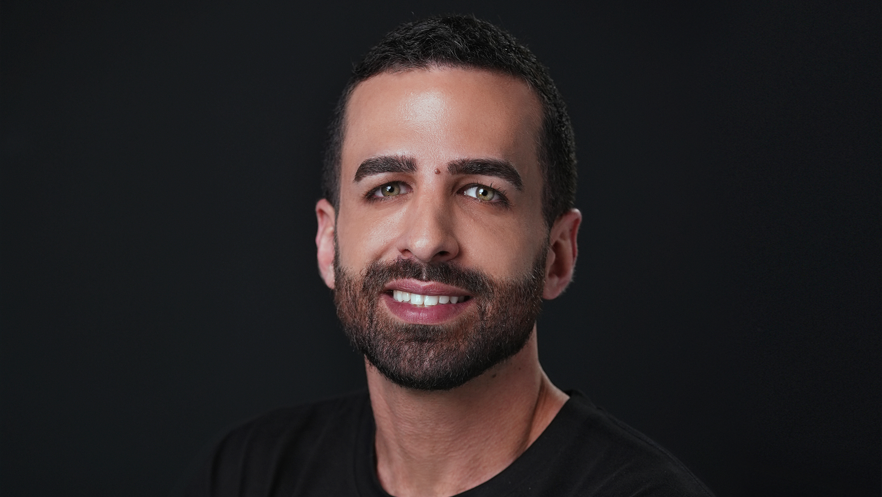
Mylo’s “AI wingman” helps reignite a fatigued online dating scene
The Israeli dating app uses artificial intelligence to introduce users through a three-way group chat, only revealing additional images when ‘vibes’ are matched.
Users are swiping left on the old ways of classic apps - and Israeli startup Mylo is answering the call for millions of singletons who appear frustrated at the current state of online dating. Today, almost 60% of couples meet through apps and websites, making it an essential form of matchmaking for those looking for love. However, with complaints of superficiality, ghosting, and swiping burnout, Mylo’s AI bot solution appears to turn the typical game of digital romance on its head.
“It's like a friend who goes to a wedding and knows two people who thinks are a good match and connects them,” explained Mylo Founder and CEO Guy Zidkia. “Mylo knows tens of thousands of people and he's like a good friend of all of them so he can make better decisions.”
The idea behind Mylo is that the AI bot constantly learns about each user, asks them questions, and provides feedback in any conversation and almost any message from the user. Then, it establishes a ‘vibe-meter’ where the users can tell Mylo how they feel about the connection. After the ‘three’ of them are introduced in a group chat, Mylo asks five multiple-choice questions and if users feel a connection, it exits the chat leaving users to their own devices.
According to Zidkia, two main aspects of Mylo differ from conventional online dating apps: the first is that the AI algorithm learns users and connects based on personality, not photos, and the second is how it remains part of the initial conversations similar to how a human matchmaker would introduce two people in real life. “The whole goal is to make it as authentic as possible. That's why we are aiming that Mylo will be a friend,” he added.
The aim is to tackle the evergreen problem among single people across the world: to decrease the superficiality of online dating and remove the repetitive and disheartening ‘swiping’ that has engulfed the digital culture. Despite more access to new dates than ever before, young people are showing record levels of loneliness: A 2020 report that examined loneliness in the workplace found that 79% of Gen-Zers and 71% of Millennials considered themselves lonely, compared to 50% of Baby Boomers. Sentiments have only increased as post-pandemic lifestyles encouraged work-from-home policies and in-person social activities experienced a drop.
“Harvard researchers found that during the pandemic, 61% of Americans ages 18 through 25 self-reported being lonely frequently, almost all of the time, or all of the time, compared to 24% of Americans ages 55 through 65,” according to Cedars Sinai. In Israel specifically, the cloud of war has seen a “dramatic” shift in dating priorities, with 72% of singles on OkCupid now seeking serious relationships, according to data from the dating app.
Mylo aims to “break this loop of frustration and disappointment” by reducing the barriers behind matches while also helping prompt users to start an authentic dialogue. Zidkia’s research stated that on other platforms men see on average 100 profiles before securing a match, and even then only 15% of matches convert to chats. With Mylo’s AI algorithms, those numbers shift to an average of 10 profiles that see a 90% conversion rate.
Mylo has been boot-strapped since its founding almost three years ago, and the app has already secured “tens of thousands” of users across Israel since it entered the market a few months ago. Zidkia confirms that even though the initial target was 18-24-year-olds in bustling cities like Tel Aviv, the app has traveled across the country and almost one-third of users (30%) are over the age of 45. Plans are to increase monetization through subscription payments of 300 shekels ($84) per year and ultimately get Mylo a passport to spread its wingman skills globally.
2 View gallery


Mylo helps connect users and then leaves the chat when 'vibes' are established
(Photo: Mylo)
The irony of a popular dating app is that its success lies in its deletion rate. Satisfied users will enter a committed relationship and deem the purpose of a dating app irrelevant. As a sign of Mylo’s success, Zidkia claims it has seen hundreds of deletions over the last few months. “We are pushing to a place where people won't pay for the time they are on the app, but will pay for the results,” he said.
Mylo’s inversion of traditional online dating - with a focus on establishing authentic communication ahead of showing an entire collection of photos - may influence bigger players like Tinder, Bumble, and Hinge to adopt similar tools, forever reshaping digital romance. Whether or not this will be the case depends on the quality and duration of the matches it creates.














